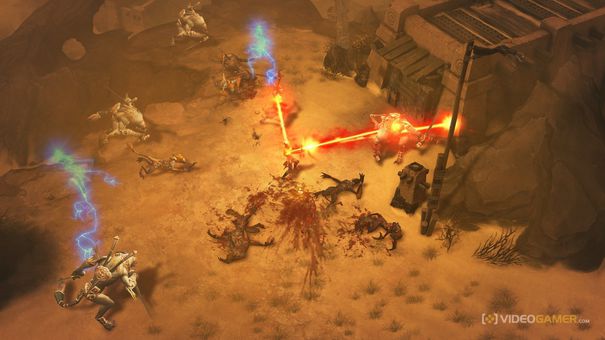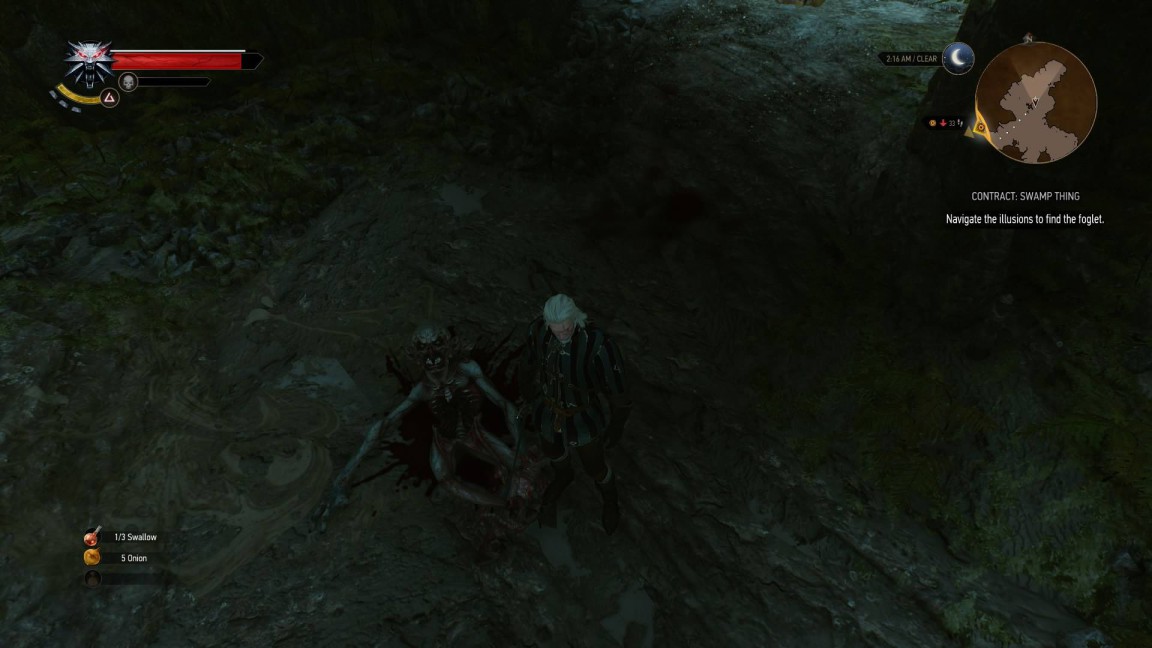



It's been a tough few days for Rockstar. Within just a couple of weeks, the community's sentiment towards Grand Theft Auto 5 has shifted from one of unsuppressed excitement to outrage. Across the internet, fans are expressing their anger towards the publisher over the chaotic launch of GTA Online. Even with the lengthy delay from spring to autumn and the additional two weeks between the launch of GTA 5 and GTA Online, the extra time just wasn't enough for Rockstar to get it right.
But with the advances in online technology, why are publishers so often unable to launch their online games successfully? And with the industry's direction towards connected, socially-driven titles, are connection errors and server failures something most gamers will simply have to grow accustomed to?
In 2013 alone, three major releases – GTA Online, SimCity and Final Fantasy XIV: A Realm Reborn - have each been subject to disastrous launches, with some players unable to connect to online services and others unable to access the game at all, forcing publishers to pull key functionality or restrict access to the entire game. Previous releases, including Guild Wars 2, Diablo 3 and Gears of War 2 have also faced significant problems at launch.
Though it's infeasible to expect developers to simulate the network environment of every different type of user and pour resources into tracking errors and connection issues only a handful are likely to experience, the reason most online games suffer at launch is often cited as something far more simple: underestimating how many players are going to attempt to access the service day one.
Financing servers comes at a huge cost to publishers, but ensuring major titles with extraordinary revenue expectations function at launch should come as the priority, rather than an oversight. Rockstar even pre-empted GTA Online's “inevitable” problems days before the online mode had launched, warning users that it was aware of “unanticipated additional pressure on the servers due to a significantly higher number of players than we were anticipating at this point.
“We are working around the clock to buy and add more servers,” it added, “but this increased scale is only going to make the first few days even more temperamental than such things usually are.”
Rather than continuing to underestimate the load placed on servers, then, why aren't publishers safeguarding their launches by overcompensating on their internal estimates? Serkan Hassan, lead game designer on next year's social racer The Crew, questions whether publishers really are underestimating numbers, or whether there's more to the issue than is being let on.
“It is something that we've seen with a few releases over this year where there's been these problems,” Hassan told VideoGamer.com. “It's a difficult one to judge. We've had situations where people will come out and say, 'Oh, we never anticipated that we would have so much success and so many people would hit the servers.' Well... really?”

In the instance of Final Fantasy XIV: A Realm Reborn, a revamped version of the 2010 MMO flop that launched to severe server issues, underestimating the game's popularity may be fairly justifiable. But for SimCity and Grand Theft Auto Online, the belief that either game wouldn't see significant userbases on day one seems indefensible – a notion backed by comments made by the games' publishers in the month's leading up to launch.
In January, EA said that momentum on SimCity pre-sales was “finishing strong”, and that over 100,000 players had participated in a four-day beta two months prior to launch. Even earlier, in October 2012, Games Label president Frank Gibeau stated that “consumer awareness [for SimCity] is tracking ahead of our expectations” and that he felt “very good about the trajectory” of the title. At the same time, then-CEO John Riccitiello commented that the publisher saw “a lot of opportunity for the growth” for SimCity, and that it recognised that the city-builder had a “huge global audience”.
EA was acutely aware of SimCity's popularity months before launch, then, which makes its reasoning for the server issues surprising. Explaining the reasons for SimCity's launch failure with Polygon, Maxis general manager Lucy Bradshaw explained that "a lot more people logged on than we expected... More people played and played in ways we never saw in the beta." With execs appearing to signal significant earnings for SimCity, that EA only accounted for 100,000 people to play at launch – as Bradshaw's comments would suggest – appears illogical.
Similarly, Rockstar's parent company Take-Two appeared to have a grasp on how popular GTA 5 would prove months in advance of release, noting that the majority of its predicted $750 million to $800 million revenue was “expected to come from Grand Theft Auto V”.
Zelnick also noted that the console install base was “roughly triple” of what it was when it launched GTA 4: a title that sold 3.6m units on its first day on sale alone. “That isn't to say that we'll see a straight line to results,” added Zelnick, “but this massive install base at the time when we think consumers are hungry for Grand Theft Auto V is very good news indeed.”
Granted the game appeared to sell more than Take-Two expected, notching up over $1 billion in revenue within its first 72 hours on sale. But with the two week grace period between the launch of GTA 5 and GTA Online, it's still reasonable to ask whether Rockstar could have done more to counter the launch issues it knew would be experienced by a sizeable proportion.
Of course, it isn't just recent titles that have suffered from such problems. Though it's hard to believe today, Valve suffered the venom of angry consumers over Steam activation issues with the launch of Half-Life 2.
“Well, I'm feeling a bit better now, but my opinion of the 'Steam'ing pile of sheet, still stands,” wrote one angry consumer about the launch issues the game faced in November 2004. “Content delivery system, my ass. Gabe/Valve *lied*, or I should say 'never ascribe to malice what can easily be explained by incompetence'.

“I got home at 3:45pm PST with game in hand and ready to install,” wrote another. “Five discs later, numerous freezes, hangs, and restarts later, I am 'unlocking' 100% of Steam files at about 1% per minute. In other words, this entire install process is about to run me two F***ING hours! I'm 59 dollars lighter in my pocket and I still can't play this game yet because I'm buzzing along at 81% right now. Wow! Out-f***ing-standing technology Valve, outstanding! You pirate-outsmarting c**ksuckers have bent your loyal customers over with this bullshit authorization nonsense for what?
“Keep me from tossing this f***ing game in a sh*t-filled toilet!”
It's disappointing, then, that almost ten years later publishers are still struggling to cope with the demands placed on their servers and failing to correctly prepare for launch. But can the trend change with the arrival of next-generation consoles?
Over the summer, Respawn engineer Jon Shiring suggested that publishers and developers may be able to take advantage of Microsoft's cloud-based Azure service to ramp up server numbers depending on player counts, bypassing the financial hit and challenging infrastructure typically required to prepare servers for day one.
“[Microsoft] built this powerful system to let us create all sorts of tasks that they will run for us, and it can scale up and down automatically as players come and go,” said Shiring. "With the Xbox Live Cloud, we don't have to worry about estimating how many servers we'll need on launch day. We don't have to find ISPs all over the globe and rent servers from each one. We don't have to maintain the servers or copy new builds to every server. That lets us focus on things that make our game more fun. And best yet, Microsoft has data-centers all over the world, so everyone playing our game should have a consistent, low latency connection to their local data-center.
"Most importantly to us, Microsoft priced it so that it's far more affordable than other hosting options – their goal here is to get more awesome games, not to nickel-and-dime developers. So because of this, dedicated servers are much more of a realistic option for developers who don't want to make compromises on their player experience, and it opens up a lot more things that we can do in an online game."
Without the need for publishers to invest heavily to accommodate the surge in launch day users only to have the investment go to waste as player numbers tail off, the issue of day one server errors could be a thing of the past. And with EA appearing to have learned from SimCity's failings by making Maxis' next title, The Sims 4, playable offline, things seem to be looking up.
“I think for us, the fact that we have so much to offer both the solo player and multiplayer-focussed person should mean that whichever your preference, if there are teething problems it doesn't mean things come to a crashing halt,” adds Hassan, who seems optimistic that The Crew won't suffer from a similar botched launch. “Not that we anticipate there being problems like everyone else says, right? But we are pushing to make sure the launch is as stable as possible. We've been able to play across servers and across studios and test the experience we have for several years now. This isn't something where the multiplayer side has come in very late in development. I've been on the project for two years and it was a multiplayer free-roam mission-playing experience when I joined, so it's been there for a while.”
Whether there'll be problems, though, is impossible to predict. “The infrastructure is good,” Hassan concludes, “but we'll have to see what happens when it happens. We've got all of our fingers crossed and we're doing everything we can.”




 . Plays, 6th December 2014
. Plays, 6th December 2014 Pollen: Exploring an Alternate Reality
Pollen: Exploring an Alternate Reality The Witcher 3: Swamp Thing Contract
The Witcher 3: Swamp Thing Contract Batman: Arkham Origins – Anarky Tags Locations Guide
Batman: Arkham Origins – Anarky Tags Locations Guide Dead Rising 2: Off The Record Boss Fight Video Guide
Dead Rising 2: Off The Record Boss Fight Video Guide